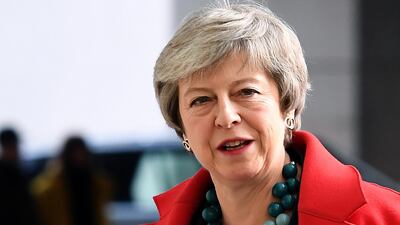British Prime Minister Theresa May said on Sunday that Britain would be in uncharted territory if her Brexit deal is rejected by parliament this month, despite little sign that she has won over sceptical politicians.
Britain is due to leave the European Union on March 29 but Mrs May’s inability, so far, to get her deal for a managed exit through parliament has alarmed business leaders and investors who fear the country is heading for a very damaging no-deal Brexit.
Mrs May said the vote in parliament would be held about January 15, as expected, contrary to reports she could delay it.
_______________
Read more:
New year reveals UK showing signs of Brexit strain
_______________
She has already delayed the vote once, in December, when it became clear she would lose unless extra reassurances from the EU were agreed.
Describing what would happen if she was defeated, Mrs May told the BBC: “We’re going to be in uncharted territory. I don’t think anybody can say exactly what will happen in terms of the reaction we’ll see in parliament.”
Amid the uncertainty over Britain’s next steps, which range from leaving without a deal to not leaving, a poll showed more Britons want to remain a member of the EU than leave, and voters want to make the final decision themselves.
Mrs May’s party itself is deeply divided over her deal, with many fearing that an insurance policy designed to avoid the re-emergence of a hard border between Ireland and Northern Ireland could leave Britain subject to EU rules indefinitely.
One of those leading that opposition, MP Jacob Rees-Mogg, said that it was "wishful thinking" that time away from parliament over the Christmas holiday could persuade him to change his mind and back Mrs May's proposal.
The Democratic Unionist Party, the Northern Irish party that props up the Prime Minister’s minority government, called on her to stand firm in demanding that the EU changes its “poison” backstop provision on Ireland’s post-Brexit border.
With the parliamentary debate on her deal due to begin on Wednesday, Mrs May said there was still work to do to get reassurances over the backstop from the EU, although there has been no sign of concessions from Brussels. She also promised parliament would have a greater say in the rest of the Brexit process and warned that rejecting her deal could prevent Britain’s exit.
“Don’t let the search for the perfect become the enemy of the good, because the danger there is actually we end up with no Brexit at all,” Mrs May said.
She did not answer whether she would, if defeated, make a second attempt to get the deal passed by parliament.
Mrs May also did not directly respond, when asked, if she was leading the country towards a no-deal Brexit.
On Tuesday, her government could face a bid to block an unmanaged exit when a group of politicians try to amend budget legislation to deny funding for some no-deal preparations unless they are approved by parliament.
It is unclear yet whether the amendment has enough support to pass.
Mrs May also repeated her objections to holding a fresh public vote on the deal.
“Practically, actually you couldn’t get a referendum in time before the 29th of March – you’d be talking about extending Article 50,” she said, referring to the two-year exit notice Britain sent to the EU in March 2017.

